Mosquitoes are out in full force, but before you run for the big toxic guns, read this post. We’ve researched several options to help you buy non toxic mosquito repellent or make your own.
Before you worry about repellent, remember the first rule of mosquito protection: Cover Up. Yes, I know it’s summertime, and that means shorts, tank tops, and flip flops. But if you’re going to be out at dawn or dusk, which is when skeeters are most active, or working in your yard just about any time, or walking in the woods, cover your skin so mosquitoes have fewer places to bite. Wear lightweight long sleeves, long pants or at least capris, socks and tennis shoes or sandals that cover most of your foot, a hat, and maybe a bandana around your neck. It sounds like a lot, but you can get very airy fabric that won’t overheat but still protect your skin. If you’re sitting on a porch or on the grass at an outdoor concert, drape a light shawl over your legs and arms for the same kind of protection. BONUS: If the mosquitoes are particularly fierce, you can spray your clothes, rather than your body. 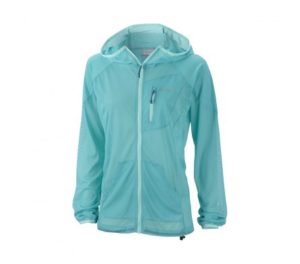 You can also try something like Columbia’s Insect Blocker Hybrid Mesh Jacket, pictured right:
You can also try something like Columbia’s Insect Blocker Hybrid Mesh Jacket, pictured right:
PLUS: Don’t let the buggers breed. Here’s how to reduce mosquito breeding on your property.
How to Buy Non Toxic Mosquito Repellent:
Read the Label, Look for These Ingredients,
Try These Products
Read the Label
Before you buy any repellent, read the label to find out what’s in it that makes it so offensive to skeeters.
Remember: repellents repel, they don’t actually kill.
If the container says “kills on contact” or something similar, it is definitely too potent to put on your skin. Don’t spray “Off” or “Raid” to kill mosquitoes, especially in an enclosed area, where you could end up inhaling those potent chemicals.
Look for These Ingredients
Essential Oils – Lavender, Lemon Eucalyptus, Geranium, Peppermint, Castor, and Lemongrass are commonly used as the “active” ingredients in DEET-free, commercially available mosquito repellents.
They may be combined with purified water, coconut oil, glycerin, lecithin, and various kinds of salts to reduce the potency of the oils and so they can be easily sprayed on your skin.
Please NOTE: Essential oils are very concentrated. Even though they’re “natural,” some people are allergic to them.
No one should put an essential oil directly on her skin without diluting it first. You can dilute it in water, in fragrance-free lotion, in coconut oil, in shea butter, or in other natural carriers.
As with any product, find the one that works best for you. You may want to try a couple of different brands (see below) before you settle on the one that does the best job of keeping you pest-free.
Picaridin – Pronounced pih-CARE-a-den, this is a synthetic compound that was developed by the Bayer company from a plant extract related to table pepper. You may see it also sold as KBR 3023, Bayrepel, or icaridin.
Appalachian Mountain Club, which compared DEET to picaridin, reports “studies have shown picaridin to be as effective as DEET in repelling mosquitoes. Unlike DEET, however, picaridin is odorless, non-greasy, and does not dissolve plastics or other synthetics.”
If you cannot find a DEET-free spray that uses essential oils, look for one with picaridin as the active ingrdient.
What About DEET?
DEET is one of the most effective chemicals used to repel mosquitoes and ticks. It is not classified as a human carcinogen by the U.S. Environmental Protection Agency; EPA believes that when DEET is used in moderation, it is safe.
However, the U.S. Centers for Disease Control note that DEET can cause severe psychological effects and serious skin reactions when applied too frequently and in high temperatures. There have also been cases of DEET being found in the umbilical cord blood of newborn babies, which means that it passed through the placenta after the mother applied insect repellent containing DEET to her arms and legs.
That is enough to motivate me to use non-DEET alternatives!
Try These Products
Here are some commercial products that I have tried that work well for me. You may be able to find them locally where you shop, but we also carry them in our Amazon store.
[show-logos orderby=’none’ category=’insect-repellent’ activeurl=’new’ style=’normal’ interface=’grid’ tooltip=’false’ description=’false’ limit=’0′ ]
You can also make your own mosquito repellent. Here’s how.
1) Pick up a bottle of an essential oil like eucalyptus, lavender, citronella, or geraniol, or try some combination.
2) Get a 4- or 6-ounce pump bottle, and rinse clean.
3) Add somewhere between 10 and 20 drops of oil to several ounces of water and shake well.
4) Spray on exposed skin, always avoiding your face.
5) Alternatively, mix a vegetable oil like coconut oil with essential oil, using no more than 2% essential oil; then rub on exposed skin.


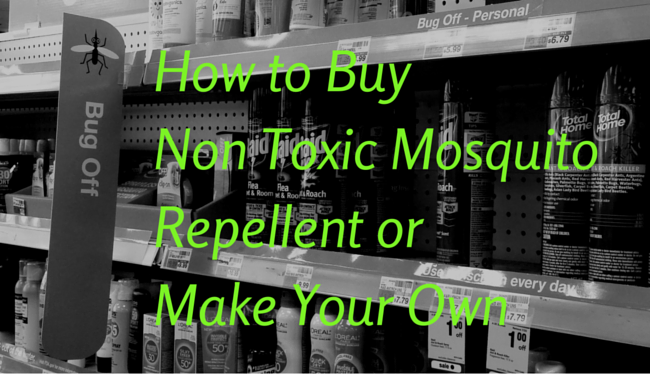
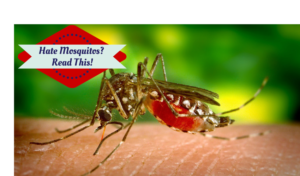

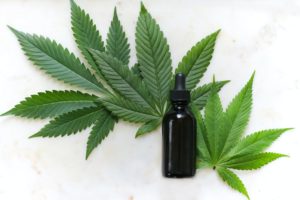
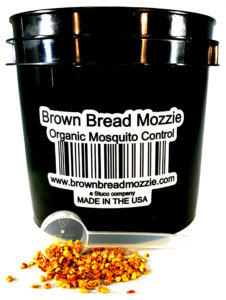


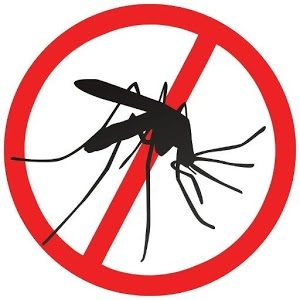



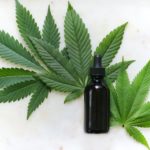




7 thoughts on “How to Buy Non Toxic Mosquito Repellent or Make Your Own”
When I garden my first choice is always to cover up. But, boy is it hot in long pants and long sleeves in the summer! Great selection of products. Havent tried those yet!
Great tips! I used a DIY last summer and it worked great! It’s been so dry here in LA we don’t have mosquitoes… yet. But they’re coming!
I’ve used Buzz Away and Repel – and find that they work well in most situations – especially for “garden variety” mosquitoes around home. But I’ve definitely been in some situations where natural brands didn’t quite cut it – like Assateague Island in the evening for instance – maybe you can relate?
Mosquitoes are horrible in Oklahoma this year after all of our flooding in the spring and early summer. I have bites all the time. Thanks for sharing some safer options to keep them away.
You’re welcome. Keep covered up. Hopefully, that will help!
Yes! On Assateague, I generally make sure to wear long sleeves, long pants and socks if I’m going to be out in the evening. Buzz Away still works pretty well for me overall, but I’m headed to northern Michigan, where the skeeters are also pretty fierce. We’ll see how well my natural repellents work! Thanks for letting me know.
Yes, I like my DIY mix of lavender oil and water – plus, it’s one of my favorite scents. It’s a blessing and a curse when it doesn’t rain out there, isn’t it? Hope you’re not threatened by any fires.